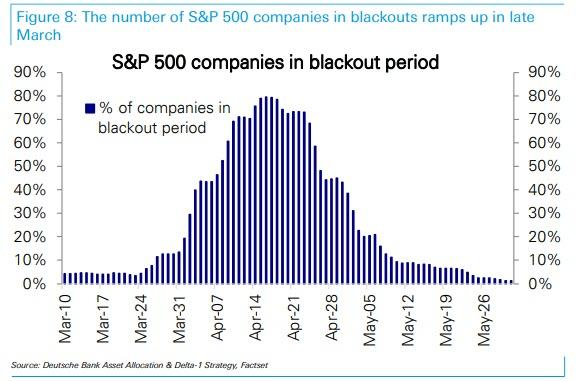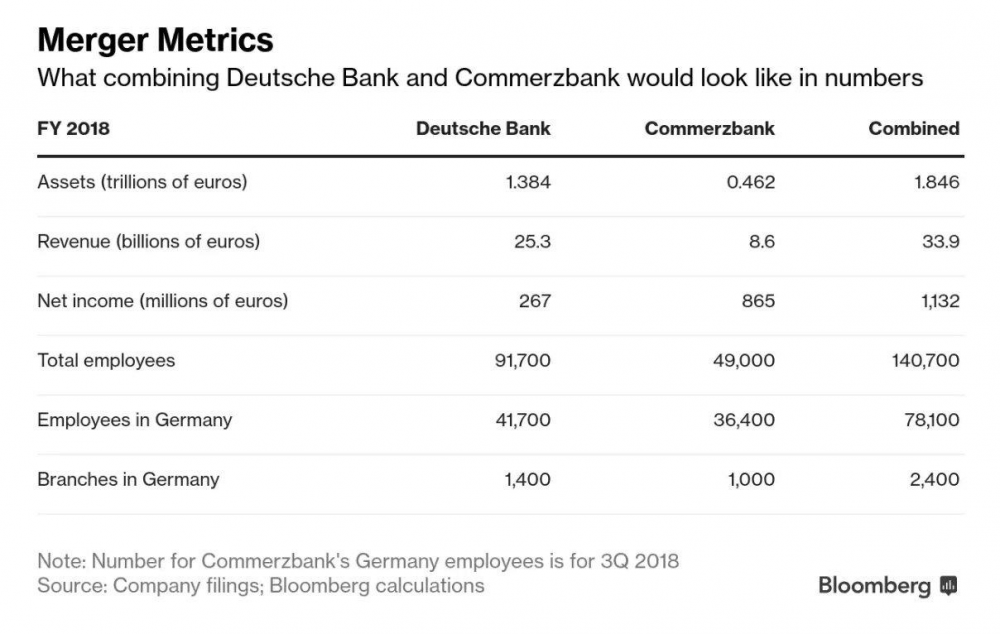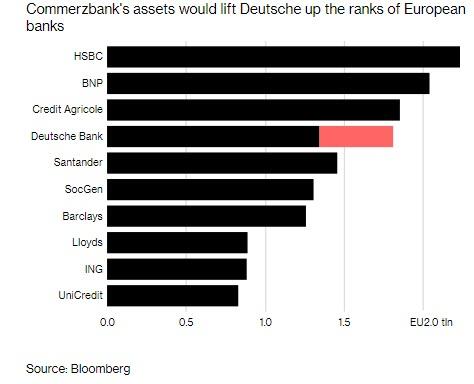
The Rothschilds withdraw their bank from the stock exchange
The Rothschild family intends to withdraw their bank from the Swiss Stock Exchange. The shares of Edmond de Rothschild are to be bought at a price of 17,945 francs per share.
Q4 hedge fund letters, conference, scoops etc
The main reason for such a decision was the desire to simplify the property structure and accelerate the company’s development. It seems, however, that the factors mentioned in the further part of the statement were more important. The bankers’ family has considerable concerns about the events in the coming months (“we are cautious”), and at the same time emphasizes the need to change the bank’s offer and reduce costs.
We are mentioning this information for several reasons. First, to show that the name Rothschild is not only associated with the events from 200-300 years ago and conspiracy theories. This is the family of bankers which still have powerful influences, this fact is confirmed from time to time in the texts of Reuters and Bloomberg.
Secondly, the Rothschilds’ caution may raise certain concerns among investors. As we know, influential people are always aware of the the global economy condition and what problems are affecting the financial system.
Thirdly, it is possible that after collapse of the banking secrecy in Switzerland (which hit the attractiveness of the banking sector there), the Rothschilds move their business somewhere else. Of course, we mean the place where the bank will again be able to provide its clients with maximum discretion. This also will be an opportunity to raise fees.
Fourth, the problem within the banking system in Switzerland looks more and more serious. The banks there on the one hand are destroyed by a bureaucratic machine (by removing banking secrecy and loss of competitiveness), and on the other hand by the era of cheap money (lower and lower profits). Effects? The long-term cooperation and relations for generations cease to be important for Swiss banks. In the pursuit of short-term profits, customers are being forced into unsafe products from which banks earn high commissions.
Swiss banking has been based on healthy rules for years, but it looks like they have been destroyed. Remember, however, that it did not come out of nowhere. Bank owners did not say suddenly: “from today only the profit counts, customer confidence is in a second place”.Mentality has changed as a result of politicians and central bankers actions. Just as in the case of ordinary people, negative real interest rates force them to withdraw money from the deposit accounts and to take risks in the markets, the similar things happens to banks.They are also forced to move away from what they know (security of funds) and look for additional sources of profits (dangerous financial products). This is one of the examples how the system changes people. Let us emphasize that this is about a system of empty money. It is worth to mention that 20 years ago, the Swiss franc has been linked to gold. Unbelievable how much has changed since then.
The Bank of Japan is a bit calmer
The problem with the Bank of Japan is that it’s not only buying assets on the stock exchange now and again (bonds, Japanese ETFs), but also it is doing it without a specific schedule. Therefore, it is a good idea to take a look at the BOJ data from time to time. Thanks to that, we know whether recent events on the stock market have been related to the activities of the bank. Ultimately, when the Bank of Japan buys assets on a large scale, there is an increase in liquidity, which also supports financial markets, e.g. in the USA or Europe.
The available data shows that from the beginning of the year to mid-March BOJ has bought shares worth 7.5 billion dollars. In comparison, over the same period last year, BOJ has invested 11.5 billion dollars in shares.
We can see, therefore, that BOJ purchases has not been carried out on such a large scale as usual. In a global perspective the so-called buybacks, short squeeze on the US stock market and the complete change of the narrative of the FED have had a much bigger impact on the shares.
From the vague announcements of the BOJ we can conclude that the share purchases this year should be conducted at a pace of 4.5 billion dollars a month. Therefore, even taking this information seriously, BOJ has a “backup”. Its launch may be needed in the coming weeks, when most US companies will not be running buybacks (on the chart you can see how many companies will not buy back their shares in a particular weeks):
Please note that although BOJ currently does not purchase shares as large as, for example, the ECB recently, it also acquires bonds. In this way, new capital can flow from bonds to shares.
Germany: The merger of bank giants is getting closer
The management of Deutsche Bank and Commerzbank has confirmed the commencement of talks on the merger. As a result, the shares prices of both banks has experienced a rise. Although in both cases prices are still close to their historical lows.
At the beginning, it is worth realizing what is the scale of activities we are talking about. In the event of a possible merger, a big bank may arise whose total asset value will be 1.85 trillion euros. At the moment, both institutions employ in total of almost 80,000 people.
How does it look like in comparison to their peers? In the case of the merger of Deutsche Bank and Commerzbank, we will be dealing with a real giant – the fourth largest bank in Europe.
Possible merger of DB and Commerzbank rising great emotions within the German banking sector. The merger would mean the lay-off of up to 30,000 employees. Of course, the argument for the merger is to reduce the operating costs of both institutions.
It can not be denied that the merger looks attractive from the perspective of politicians and the management of both banks. In the event of further problems within the banking sector in Europe, it will be even easier to explain to the public that the new Deutsche Bank is not allowed to fail and should be saved.
Who knows, maybe the pursuit of merger is also related to the special status of Deutsche Bank, which Commerzbank does not have. We mean at this point the presence on the list of “key institutions for the system”. According to what we mentioned in the article “Untouchable bankers: How did they secure the impunity?”, The presence of a bank on such a list means that its current and former employees are unpunished. Justice can not reach them regardless of the crimes they have committed.
It is very likely that a possible merger will let the existing directors of Commerzbank to gain inviolability. Eventually, after the merger they will become employees of Deutsche Bank, an institution extremely important for the system.
If we also take into account the fact that in 2008 Commerzbank has been saved at the expense of taxpayers, we see that the merger of giants will be another part of the policy for the rich.
Subsidies for companies – who is harmed by this?
In our article “Independent Trader News – February 2019” we mentioned that Amazon did not pay a single dollar tax for 2018. We also wrote there that as a result of creating a complicated law, the largest companies gain at the expense of the small ones.
After that, we have received and interesting comment, it’s not like we are not interested in finding out exactly what resulted in the zero (and even negative) Amazon tax. It has been also included in the comment that “the law is the same for everyone” and we describe the Amazon as “whipping boy” just because the giant uses tha law in force.
Regarding the first plea, thank you for the clarification, but it confirms the extreme complexity of the law. It could be much simpler, as it has been demonstrated in another comment: “buybacks should be discouraged while double taxation of dividends should be maintained”.
In regards to the „whipping boy” – in our text we emphasized that it is not advisable for all big companies to pay high taxes. On the contrary, let them be as low as possible, but the same for everyone. Meanwhile, the situation with Amazon ideally has showed an absurd ofthe economic reality.
In response to the„the law is equal for all companies”, we think that this is not true, taking into account the fact that it is allowed to receive special subsidies and concessions only for large entities. Here we go back to the Amazon’s example.
The first comment also mentioned that “the last activity of the American Congresswoman Alexandria Ocasio-Cortez, has led to the resignation of the Amazon’s office in New York where 25 000 people has supposed to work with an average salary of 150 000 dollars a year.
The reader, however, skipped a very important fact and although we hate Ocasio – Cortez, we would like to draw your attention to this fact. New York offered loans to Amazon and concessions totaling up to 3 billion dollars. There was also a second city that offered 0.5 billion dollars. There was many other such cities willing to give Amazon more. Is the law that allows such subsidies good and treats everyone equally? Does such subsidies favor the economy because they create new jobs?
This topic has been commented by Marc Faber in an interesting way:
” When companies compete for customers, they have to offer better products or lower prices. They are forced to innovate and improve efficiency in production. In economist lingo, product market competition is not a zero-sum game (my gains are equal to your losses), but a positive-sum game (my gains exceed your losses).
By contrast, corporate competition for state subsidies is a zero-sum game. Amazon is not going to be more productive in New York than in New Jersey –it will only pay fewer taxes. If companies are successful in pitting one state against another, they will end up paying no state taxes.
As a result, the economy will not be one iota more efficient, and the rest of us will end up paying more taxes to make up for the revenue shortfall. Competition for subsidies also fosters crony capitalism and hurts productivity growth.
It fosters crony capitalism because it favors companies that are well- connected, rather than companies that are more efficient. A recent paper shows that companies are more likely to receive subsidies when they make financial contributions to political candidates in the state. Competition for subsidies also hurts productivity growth because it forces companies to dedicate time and resources to influencing the political choices, rather than innovating and improving productivity.”
In turn, professor Luigi Zingales has added to the above interesting insights:
” A small grocery store cannot get the governor’s attention by threatening to move across state borders. As a result, small stores will face the full burden of local taxation, while large ones receive tax exemption and subsidies.
Not only does this too-big-to-tax policy distort product market competition, it is fundamentally un-American. In 1773, Boston patriots threw British tea into the harbor to protest the tax favored status of the British East India Company, which was able to underact American importers not because it was more efficient, but because was tax favored. In other terms, the American Revolution started as a revolution against those large corporations that use their political power to distort competition to their advantage.
I am not a lawyer. As an economist, however, I can state with certainty that there is no difference between discriminating through taxes and discriminating through subsidies.
The problem is not Amazon or New York. Foxconn received a similarly outrageous subsidy from the state of Wisconsin just a few months ago. The problem is a system that with the pretense of helping business destroys free markets.”
We have the impression that the statements of Faber and Zingales exhaust the subject of an equal rightsfor all companies in capitalism based on deals and agreements. The point is to leave capitalism alone and get rid off the deals and agreements. For this to happen, revolt is needed from time to time, primarily against the growing role of the nation and politicians.
Zero Hedge banned by Facebook
It is difficult to tell how popular the Zero Hedge portal is, so there is a little introduction just in case. Zerohedge.com is a portal focusing on financial markets and politics. We can find there publications of many valuable authors. Its main advantage is the fact that the texts published there often unmask both the manipulation of the stock market and the lies of mainstream media.
The portal is very popular in the US, which is why it has become a real scandal when Zero Hedge has been blocked on Facebook. The situation took place last weekend. Anyone who wanted to share the link with zerohedge.com could read the message “The link does not meet the standards of our community”.
The indignation in this matter among others has been expressed very quickly by Donald Trump’s son, Nigel Farage and Peter Thiel. Owners of Zero Hedge said that it was probably a revenge for articles about Facebook problems. None of the directors of the social media platform commented on the matter.
The solution of the conflict came on Tuesday. Facebook suddenly unlocked all links related to zerohedge.com, and the representative of the portal explained that this was an error related to the automatic detection of spam. The owners of Zero Hedge did not know until now which of the articles was the first to be considered as spam.
In our opinion, Facebook has simply overturned censorship. When the Zuckerberg’s employees realized how big is the scale the reaction, then they admitted that the attack on Zero Hedge will do more harm than good.
This situation also shows what happens when the community is able to rebel. You can always go the easy way and say that Facebook is simply a private business that can do whatever it wants. This will not change the fact that it is also a more powerful platform than many countries in the world. Only the reaction of users to the subsequent Zuckerberg censorship attempts may somehow limit the efforts of restricting freedom of speech.
By the way, Facebook with its censorship has already gone so far that it does not allow us to promote 90% of our articles.
Article by The Independent Trader




